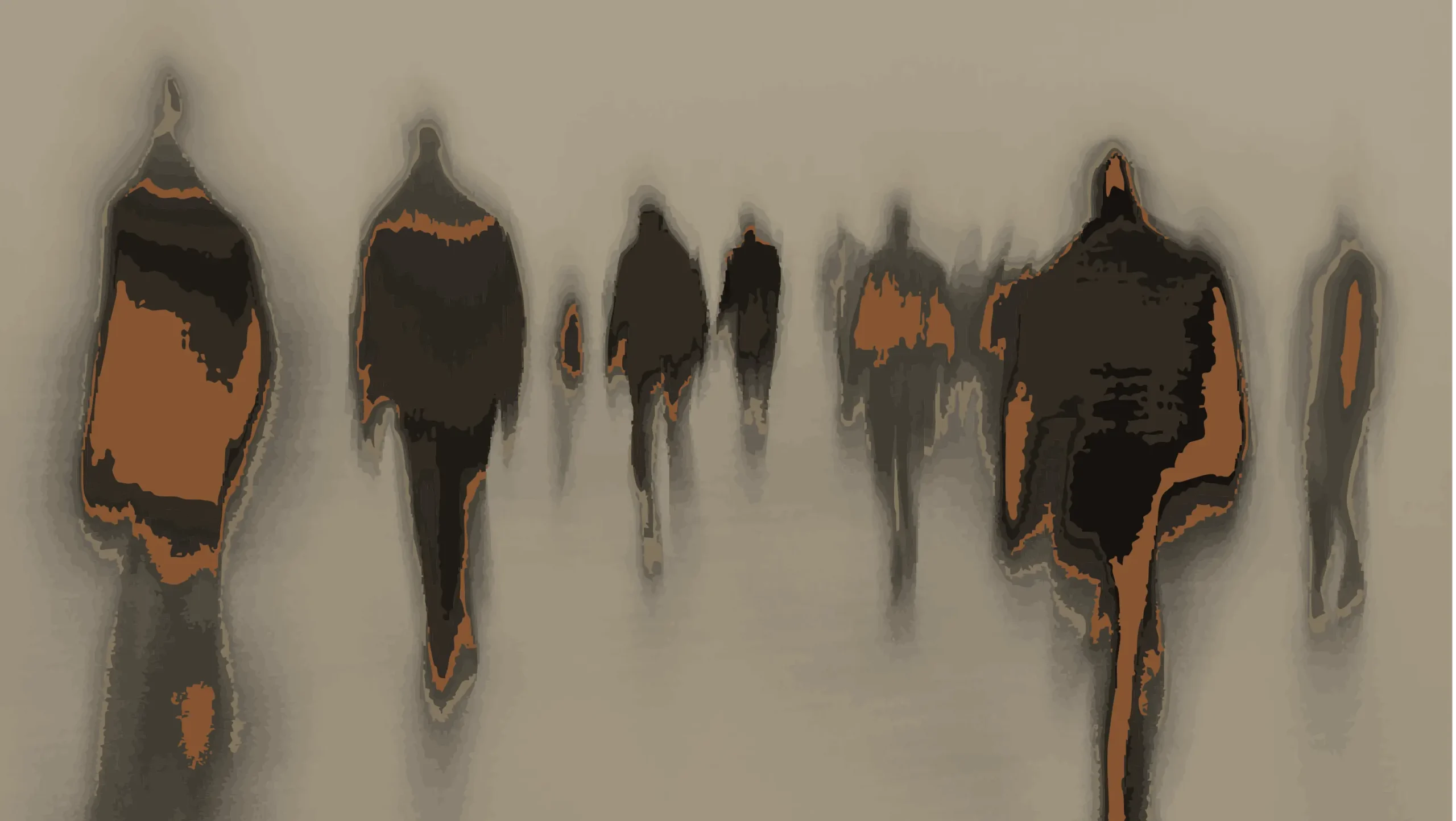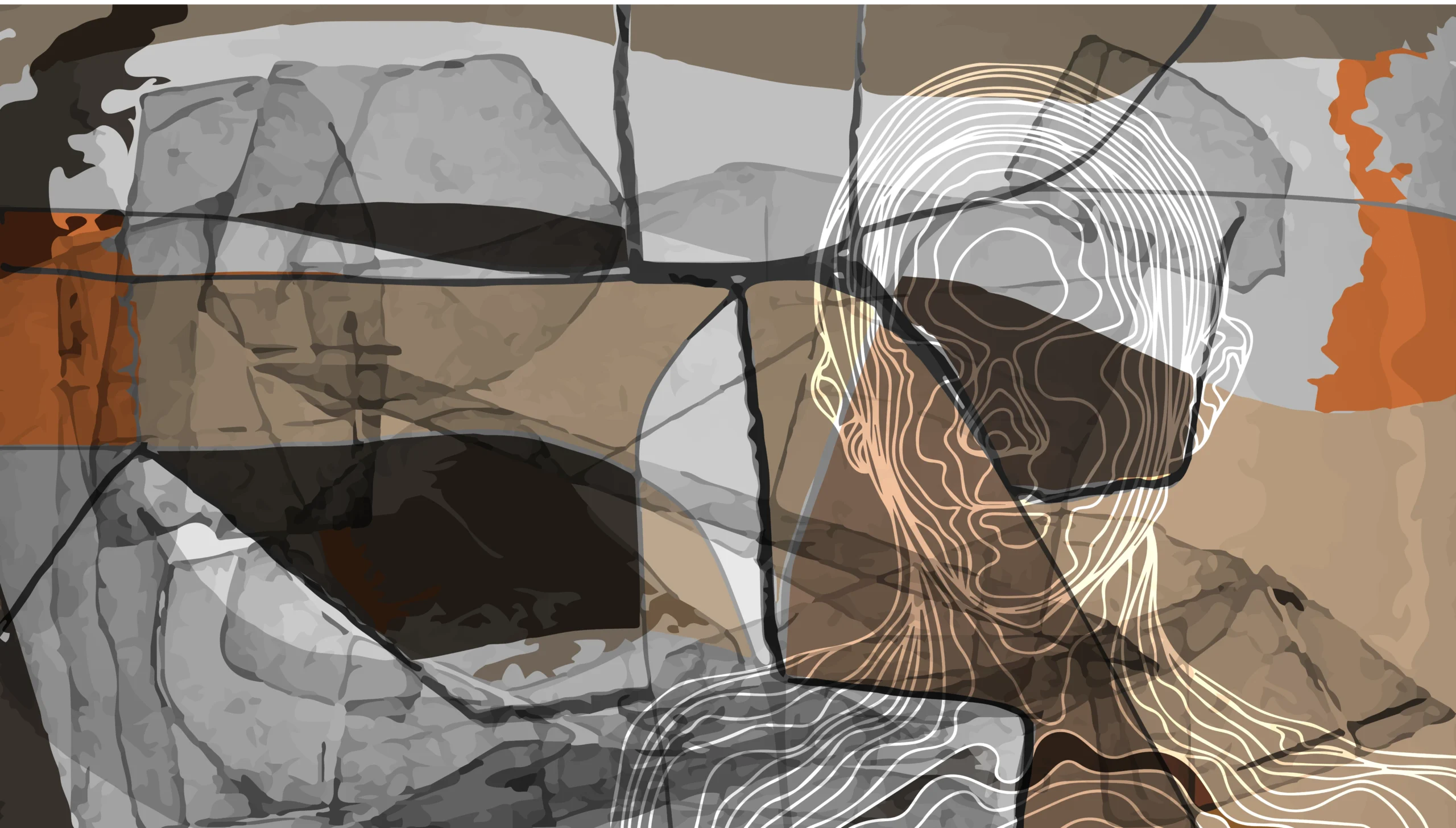
Meeting My Shadow at Midlife
I recently began reading Meeting the Shadow—a book Qusai gave me so I could deepen my understanding of Shadow Work, one of the practices we use at Borderlands. I expected
Women seem to more easily get how vulnerability can be a sign of strength. Men, hiding behind stoicism and individualism, have a hard time even acknowledging their need for support and self-expression. Consequently, most retreats are designed with women in mind–after all, they are more likely to join. But men need safe spaces where they can embrace their masculinity and grow in a healthy way. That’s one of the main reasons we started Borderlands–designed to uncover the best man (and human) in you.
In the dialogue about modern masculinity, amidst the cacophony of daily life and societal expectations, many men find themselves navigating an emotional landscape that often leaves little room for vulnerability or genuine self-expression. This situation underscores a pressing need for spaces like men’s retreats, which can offer more than just a pause from the relentless pace of daily life—they provide a vital opportunity and safe container for men to explore the terrain of their own lives with a raw, unfiltered candour.
Studies suggest that men who conform to traditional masculine norms, which include stoicism and self-reliance, have significantly higher chances of experiencing psychological problems (Mahalik et al., 2003, “Men, Masculinity, and the Contexts of Help Seeking”). At the extreme, the silence imposed by rigid masculine ideals manifests most starkly in the suicide rates among men, which tower alarmingly over those of women. The World Health Organization notes an unsettling trend: men’s suicide rates significantly eclipse those of women, revealing a crisis often hidden by the veneer of toughness. In India, the age-standardized suicide rate is particularly high among men, standing at 18.5 per 100,000 compared to 14.5 for women (“Global Health Observatory data repository,” WHO). This trend mirrors patterns in richer countries; for instance, in the UK, men are three times as likely to die by suicide as women (Samaritans, 2020 report). It’s a chilling metric that underscores the urgency for spaces where men can dismantle the armour of stoicism to reveal the flesh and blood beneath.
Beyond the grim statistics, the daily reality for many men involves a quieter, but no less significant, battle: the struggle to connect. Post-college, the corridors of camaraderie often narrow into isolated paths, leaving many to navigate the complexities of life without the close friendships that once anchored them. Men are expected to thrive and find brotherhood in shoulder-to-shoulder formations—be it in competitive sports, the structured hierarchies of corporations, or even the solemn rows of prayer. It speaks to a style of interaction that’s goal-directed, linear—a line that drives forward but sometimes misses the rich terrain found in the circle.
Recent scientific studies have shed light on structural differences in the brains of men and women that may influence their learning and interaction styles. Men typically show greater connectivity within each hemisphere of the brain, facilitating a preference for linear, goal-oriented tasks. In contrast, women often exhibit more connections between hemispheres, enhancing their ability to engage in multitasking and collaborative, empathetic problem-solving. This divergence suggests why men find it easier to from “shoulder-to-shoulder” educational and interaction styles, akin to lines moving in parallel, whereas women might naturally favour “face-to-face” settings, akin to a circle where every voice has equal weight and visibility (Gur et al., 2013, Psychiatric Quarterly).
The retreat seeks to harmonise these dynamics, drawing the line into a circle where men can face one another not as competitors but as comrades, each a mirror and a mentor. Here, the geometric rigidity of the line softens, allowing men to explore the circle’s continuity—a space where conversations flow without a fixed endpoint, where vulnerability is not a weakness.
One of the significant challenges men face in forming deep and trusting relationships with one another is the backdrop of cultural expectations that valorize independence over vulnerability. The societal push towards stoicism and emotional restraint can hinder men from developing the trust necessary for strong communal bonds. Men’s retreats address this gap by fostering environments where trust and openness are foundational. These retreats encourage men to engage not just alongside each other but face-to-face, promoting a dialogue that is both circular and integrative, blending the strength of linear interaction with the richness of circular connectivity.
Men’s retreats emphasise the importance of being in touch with one’s body and emotions through experiential learning. Activities designed to engage both the mind and body—such as martial arts, wilderness excursions, and mindfulness practices—help men reconnect with their primal instincts and emotional landscapes. This embodied learning is crucial as it integrates physical experiences with emotional and cognitive processes, fostering a holistic sense of self-awareness and health.
Play, an essential aspect often overlooked in adult life, is crucial for psychological resilience and social bonding. Men’s retreats create a playful yet challenging environment where men can learn and grow together, fostering a sense of community and mutual support. This aspect of the retreat helps break down barriers of competition and isolation, encouraging men to see and be seen, foundational for meaningful connection.
A retreat that meets these needs effectively should offer:
In essence, men’s retreats like Borderlands are designed not merely as escapes but as transformative experiences that challenge and nurture. They can empower men to redefine their strength as a balance of courage and compassion, enabling them to return to their lives enriched and realigned. Such retreats hold the promise of not just individual transformation but also the potential to influence broader societal change, reshaping how masculinity is perceived and expressed in the modern world.

I recently began reading Meeting the Shadow—a book Qusai gave me so I could deepen my understanding of Shadow Work, one of the practices we use at Borderlands. I expected

Over the last year, 560 men have reached out to Borderlands. We’ve spoken with more than 300 — sometimes for hours, sometimes for minutes that felt like years. These weren’t

In a culture that measures worth through achievement and social standing, discomfort is treated as failure and aging as decline. But what if practice isn’t about becoming more successful, younger,